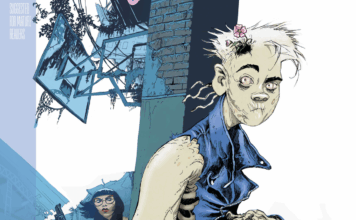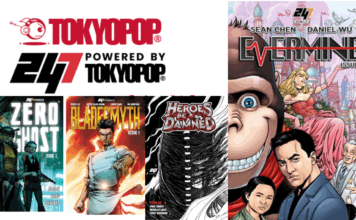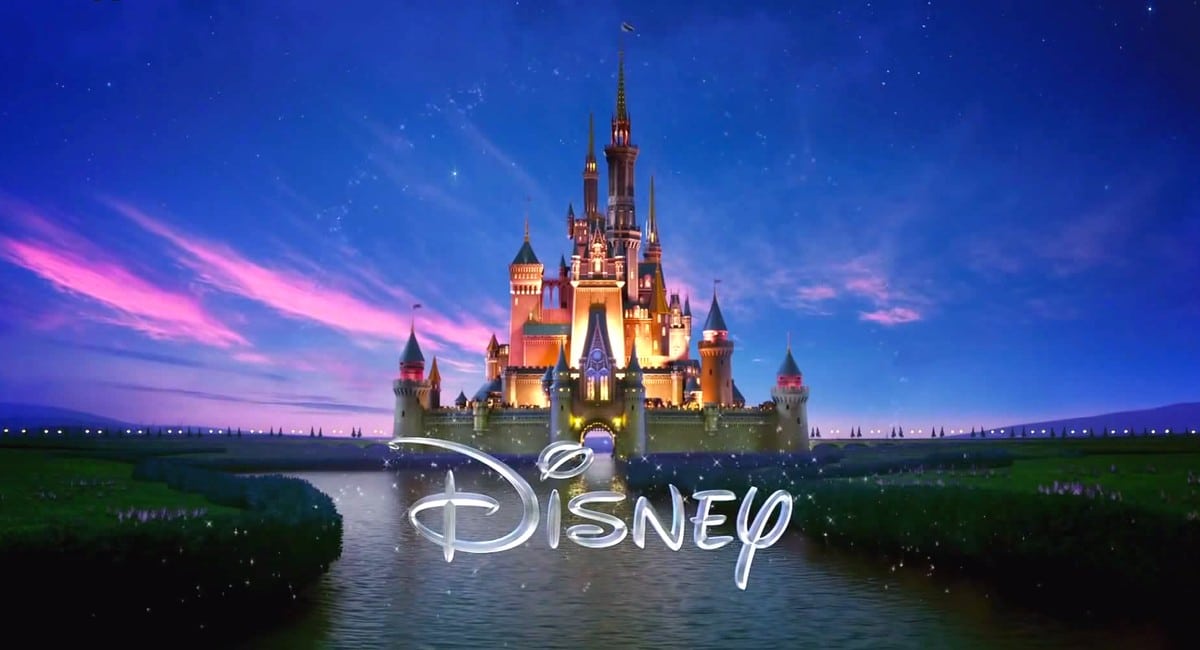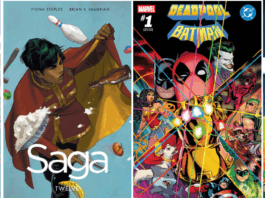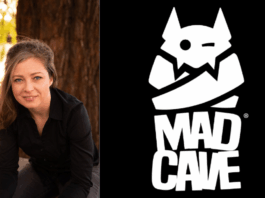Comics Industry Person of the Year: Robert Kirkman
This year in addition to our usual questions for the Year-End Survey – sent to a mix of creators, publishers, journalists and marketing personal—we added a new category: Person of the Year, the person who, we we put it, was "the most important person, someone who had an impact, someone who set the pace, or had a banner year." We were very curious to see what kind of responses this question would get – while a lot of people are doing some of the best work of their careers, or emerging as critical favorites, it was a very mixed year business-wise and we were wondering who would be seen as the most visionary and decisive person.
Well, we needn't have worried that this would be a hard question to answer.
Tidings of gloom #2: Brian Hibbs
Speaking of the party's over, Brian Hibbs looks in the industry mirror and doesn't like what he sees:
Tidings of gloom #1: Josh Blaylock
Josh Blaylock is back and blogging.
The publisher of Devil's Due, which seems to have gone on hiatus after selling many of its characters to Arcana, has moved to a tell-it-like-it-is blog and various ventures like his events company Pop Cultour. Although the most recent years of Devil's Due was filled with charges of non-payment to freelancers, no one can say Blaylock isn't a student of the game. He has some very good advice re S! corporations here, and another blunt post called
Will February ’11 Be a Comic Book Direct Market Massacre? Like many industry watchers, he feels the price CUT coming in February is of some concern:
Convention economics from a different viewpoint
Over the years we've published links to many an analysis of convention sales -- what works, what doesn't, what is the real economics. But here's an interesting take from Tony DiGerolamo, writer of JERSEY DEVIL and several issues of BART SIMPSON for Bongo, and a webcomic called SUPER FRAT, among other things. His blog runs on The Webcomic Factory, a joint effort by DiGerolamo and Christian Beranek that publishes various webcomics. I couldn't find DiGeralamo's other writing credits easily on the site, but we hope it's fair to say he's one of those small publishers you see in various artist's alley who have small press genre books -- the kind of stuff that doesn't get as much attention as mainstream or art comics -- sometimes justifiably, sometimes not.
Go west, young DC online department…and many more DC changes
A lot of changes have been announced over the last month at DC. Here's what we know or can guess.
Will you give Tony Harris $60k for his new comic? — UPDATED
Kickstarter, the website that allows creative types to raise money by direct appeal to a community of supporters, has been helping all sorts of folks get their dream comics out there -- from reprints of obscure old comics, to webcomic collections. Most projects we've seen are fairly modest. But some are much bigger in scope.
Tony Harris has just turned to Kickstarter for his new project ROUNDEYE: For Love. That would be Starman/Ex Machina, five-time Eisner nominee Tony Harris.
Amit Desai named SVP Franchise Management at DC
Clark, we are not in Metropolis anymore. In the continuing evolution of DC Entertainment into a pillar of the Warner Brothers library, Amit Desai...
Diamond: Comics, periodicals down, GNs up in November
Diamond has released their November basic data dump, and no sales rebound sight, with overall sales down 8.28 percent from a year ago and down 6.64 percent from November. However, graphic novel sales surged 14.84 percent since last year, driven by sales of THE WALKING DEAD trade collections. John Jackson Miller already has his preliminary analysis up. Diamond has recently started releasing much more information on comparative sales -- I'm told this is because the partial figures they were releasing were giving rise to inaccurate projections by such folks as Miller. We have a lot more data to go on on how the market changes from year over year; let's be judicious in how we analyze it.
Overall, the comics market is down 5.66 percent YTD in dollars and -4.18 percent in units from 2009. While that isn't a great number, considering the economy, it could be worse.
Dark Horse releases more info on their digital comics program
When Dark Horse announced their digital comics initiative back at NYCC, they went about it in a different way from most other publishers. Instead of partnering with an existing storefront like comiXology, they decided to use their own webstore and application to sell comics -- and at the $1.49 price point. There was also talk of add-ons that made going to the physical comics shop a part of the experience.
Since then details have been sketchy, but today Dark Horse released the first information on the program, via a mailing to retailers in the Diamond Daily. A bit of the information was also released to the press, including the plan to release ORIGINAL digital material -- but only to those who purchase brick and mortar comics.
Must read: Exclusivity Wars sales history
Author/historian/statistician John Jackson Miller used his holiday very productively: to put some of the missing years of comics sales stats up at his...
Doran launches valiant, probably futile piracy counterattack
Has the pirate menace changed the creative business model for good? Most would say so, but some people are still fighting back. Up on The Hill, Colleen Doran launches a spirited counter attack on piracy:


